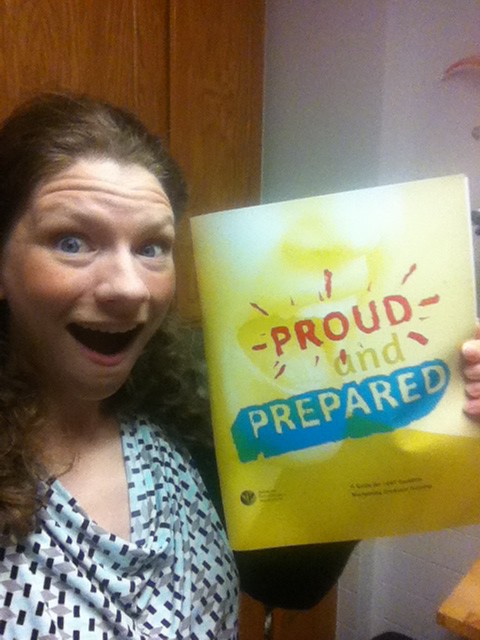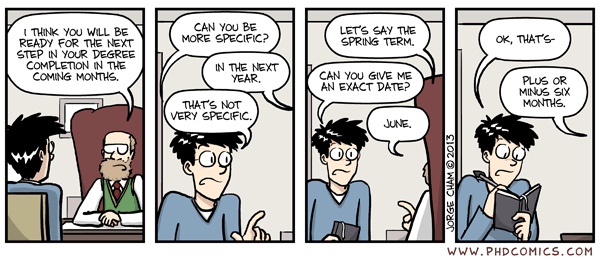
Which advisor is right for you? (Source: “Professor Fink” by Profound Whatever on Flickr. Some rights reserved.)
A previous blog post by Drs. Ameen and El-Ghoroury made some excellent points about the graduate school decision. In this post I will share a few in-depth strategies about selecting an advisor for a research-oriented doctoral program.
I was extremely lucky to find an advisor like Dr. Jennifer Vonk, but you probably want to minimize the influence of luck on your experience. After listening to many cases of relinquished doctoral students, I realized that in many ways, applying to work with your advisor is a gamble. Here is a person who is primarily responsible for your career, yet you know very little about them.
The points I mention here are based on my experiences and conversations with undergraduate students over the years.
First, the structure of admissions to a research-intensive graduate program is quite different from a typical undergraduate admissions process. Your standardized test scores and academic accomplishments are important, but what ultimately matters is what you are able to bring to the lab and to the program. Therefore, during your program research, it can be useful to consider where you would fit in the best based on your best qualities.
Second, shortlisting potential programs from a broad database like Graduate Study in Psychology is just the beginning. Be prepared to start focusing on the seemingly minute details – current and past research produced by your advisor’s lab, for example – which will make a huge impact on your experience. These details can be found by combing through the CVs and recent publications of prospective advisors. As you to do your homework, check on these particular variables:
- How frequently they publish: If you are not fully aware of this factor, you may end up being surprised or disappointed after you join the lab. The publication frequency (along with the quality) usually indicates their general research activity level, and might provide hints in terms of what they expect from their students.
- The quality of journals they usually publish in: Generally speaking, journals with higher impact-factors publish better research (details are a bit too complex for this post). APA has its own journal database where you can read more on each of their journals (and their impact factors). You can also gauge the impact of non-APA journals through some basic online research.
- How often they include graduate students as co-authors: This is an important factor because to be a successful researcher you need to have something to show for your work. Advisors usually have their own criteria for authorship such as who came up with the most important idea, or who worked the most of the project, and so forth. In case you are not sure how authorship is decided, or how frequently their graduate students are publishing, these may be important questions to bring up during your interview.
- The research interests of other students in the lab: Your lab-mates might be the ones you spend most of your time around. They can be quite influential in your work in terms of your class discussions, research collaborations and your lab’s focus. Reading about previous students in the lab, you can gauge what types of topics the lab usually handles and how flexible the research focus might be.
- The thematic aspect of multiple research papers: If you really want to know what your advisor likes, dislikes, finds interesting, or is strongly opinionated about, you need to go through their research publications in detail. If you go through several of their papers, you can find out which theories they like or dislike, what arguments they find compelling or weak, and what are their general views on their subject of interest. While research papers won’t tell you everything you need to know about an advisor’s interpersonal qualities, doing this review might stave off a complete falling-out between student and advisor.
These are some (of the many) points that prospective applicants to research-oriented doctoral programs in psychology are often unaware of, but can have a huge impact on their academic careers. Taking these into consideration may significantly lower your likelihood of facing unwanted surprises or disappointments in your new program and lab.

Editor’s note: Chinmay Aradhye is a third-year student in the Experimental Psychology PhD. program, Department of Psychology, Oakland University. He is also the APAGS Michigan State Advocacy Coordinator. Contact him at caradhye@oakland.edu.






